#nibelungen saga
Explore tagged Tumblr posts
Text

#siegfried#sigurd#sigfrid#nibelungenlied#die nibelungen#der ring des nibelungen#völsunga saga#germanic heroic legend#norse mythology#germanic mythology#northern europe#art#nordic#norse#germanic#europe#european#scandinavia#scandinavian#germany#german#richard wagner#the ring of the nibelung#horn#sword#gram#balmung#nothung#heroes
84 notes
·
View notes
Text

Sigurd goes to the dwarf Mime. By Wilhelm Hauschild.
#Wilhelm Hauschild#german mythology#sigurd#mime#dwarves#Sigurðr#Siegfried#Nibelungenlied#Saga Völsunga#richard wagner#Götterdämmerung#twilight of the gods#gram#Der Ring des Nibelungen#notung#nothung#Völundr#gramr#balmung
20 notes
·
View notes
Text



















"NUN ZÄUME DEIN ROSS, REISIGE MAID!" DIE WALKÜRE - R. WAGNER (2 act)
Here some Brünnhildes
Mathilde Fraenkel-Claus as Brünnhilde; ?, (ca. 1902)
Marie Burk-Berger as Brünnhilde; Munich, 1907
Lucienne Breval as Brünnhilde (print); Paris, 1892
Berta Morena as Brünnhilde; Munich, 1907
Emmy Hoy as Brünnhilde; Kiel, 1912
Maria Maier as Brünnhilde; Mainz, ?
Maria Gembarzewska / Maryla von Falken as Brünnhilde; Munich, 1913
Helena Forti as Brünnhilde; Dresden, 1913
Loni Meinert as Brünnhilde; Mannheim, 1914
Gabriele Englerth as Brünnhilde; Wiesbaden, ca. 1915
Theo Drill-Oridge as Brünnhilde; Hamburg, ca. 1923
Helene Wildbrunn as Brünnhilde; Vienna, ca. 1923
Elsa Alsen as Brünnhilde; New York, 1926
Eugenie Burkhardt as Brünnhilde; Dresden, 1926
Nanny Larsén-Todsen as Brünnhilde; Bayreuth, 1927
Olga Haselbeck as Brünnhilde; Budapest, (ca. 1930)
Henriette Gottlieb as Brünnhilde; Berlin, 1930
Frida Leider as Brünnhilde; Berlin, ca. 1934
#classical music#opera#music history#bel canto#composer#classical composer#aria#classical studies#maestro#chest voice#Die Walküre#The Valkyrie#Musikdrama#Richard Wagner#Der Ring des Nibelungen#The Ring of the Nibelung#Norse mythology#Völsunga saga#Poetic Edda#German legends#Nordic legends#the Ring cycle#classical musician#classical musicians#classical history#opera history#history of music#historian of music#musician#musicians
18 notes
·
View notes
Text

Sigurt the Dragonslayer🐉
I just learnt about this myth and had to draw this scene
Sigurt (or Sigfried) is bathing in the blood of the dragon to become invulnerable, but a linden leaf falls on his back, preventing the blood from reaching the spot and leaving it defenceless
He will later die stabbed in the back
#original art#fanart#sigurt#norse mythology#siegfried#procreate#digital art#illustration#volsunga saga#mythology#mythology art#mythology fanart#der ring des nibelungen#dragon
2 notes
·
View notes
Text
Nibelungensage (& Adjacent) Music Masterpost
Or, what happens when you already have a full (if loosely-based) opera cycle to listen to and, in the great tradition of objectively-flawed-but-still-iconic animated classics from your childhood, still ask, "Thank you. But what else?"
Part 1 of Hopefully At Least More Than One to come. Genres range from rock/metal to folk to techno to Stuff I Wouldn't Really Know How To Classify. Can't guarantee all of the songs listed here will be to your taste (after all, not all of them are to my taste, either) but some are, imho, real bangers.
Nibelungenlied (full album) - German Oak
The Song of the Nibelungs (full album) - Wotan
Die Nibelungen (full album) - Årabrot
Drachenblut - (full album) Mystic Circle
Hôrt mîn Sagen (full album) - Angur
Wigant (full album) - Stainless Steel
Nibelung (full album) - Siegfried
Balmung - Siegfried
Rheingold - Siegfried
Siegfried - Siegfried
Drachenherz - Siegfried
Die Treuewacht - Siegfried
Am Isenstein - Siegfried
Hagen Von Tronje - Siegfried
Hagen the Cruel - White Skull
Kriemhild Story - White Skull
The Killing Queen - White Skull
The Terrible Slaughter - White Skull
Etzel - White Skull
Attle and Bleda - White Skull
Sigurdlied - Faun
Brynhilds Lied - Faun
Brynhildur Táttur - Faun
Dragon - Corpsepain
Hagen Von Tronje - Corpsepain
Nibelungenlied - Wergeld
Der Ring des Nibelungen - E Nomine
Nibelungen - Nico
Siegfrieds Song - Julian Lehmann
SGFRD Dragonslayer - Feuerschwanz
Brunhild - Saltatio Mortis
Brunhilda - Dziewanna
Hagen Von Tronje - Saxorior
Das Hildebrandslied Teil 1 - Menhir
Das Hildebrandslied Teil 2 - Menhir
Hildebrandslied - Transit
#das nibelungenlied#nibelungenlied#the nibelungenlied#die nibelungen#volsunga saga#saga of the volsungs#volsungar#norse mythology#der ring des nibelungen#the ring of the nibelung#ring cycle#hildebrandslied#helden sage
15 notes
·
View notes
Text

#germanic#norse gods#norse mythology#norse paganism#norse pantheon#norse heathen#viking#norse#fritz lang#die nibelungen#siegfried#fafnir#sigurd#volsunga saga#volsungs#Fritz Lang#german expressionism#german cinema#silent film#1927
5 notes
·
View notes
Text
when the men in your life gaslight you so bad you gotta gatekeep and girlboss twice as hard
#this is about the nibelung saga btw#Brunhild deserved better!#so did Griemhild#classical literature#medieval literature#nibelungenlied#die nibelungen#the ring of the nibelung
9 notes
·
View notes
Text

Scene from the Edda or the Nibelungen Saga by Hermann Prell (1904)
176 notes
·
View notes
Text
I haven't finished the story yet but I'm surprised that some people haven't pick up on some things and not surprised that people haven't pick up on others so here is and incomplete list that will probably be updated as I go along
The setting is some time in 1913-1914 Austria, before World War One broke out, time period is characterized by people of different ethnic groups in Europe getting into conflicts with each other and they could often lead to violence, eventually these conflicts would be a major factor in WWI
Wagner- the are referring to Richard Wagner, he was a German man who wrote operas, one of his most famous and one that is referred to the most is The Ring of the Nibelungens (also called the Wagner Trilogy), the story is a loose adaptation of the last story in the Norse Volsunga Saga, the story of Sigurd and and the Germanic poem the Nibelungenlied (putting the two stories together is not that far of a stretch as the Nibelungenlied appears to be somewhat based on Sigurd's story) the opera would latter become very popular with the Nazis. (The Nazis appeared to have a hard time understanding that the main lesson from the Nibelungenlied is actually that revenge is not good, and also did not understand many other lessons from the story)
Heinrich, I believe, compares the paintings from Isolde's brother to the Rhinegold which is some great foreshadowing because the Rhinegold is very cursed and whoever has it shall suffer great tragedy
There are references to ways of treating "hysteria" that I think @sleeplesssmoll's post did a good job of overviewing
57 notes
·
View notes
Text
I'm now reading another of Heidi Ann Heiner's fairy tale collections. Sleeping Beauties: Sleeping Beauty and Snow White Tales from Around the World. Since I enjoyed Cinderella Tales from Around the World so much, I couldn't resist opening another of Heiner's books.
The first part of the book is devoted to the different international versions of Sleeping Beauty, the second part to the different versions of Snow White. This is followed by other tales of "sleeping beauties" that don't fit nearly into either category.
We start with the medieval Sleeping Beauty prototype tales from the 13th and 14th centuries.
*The earliest known prototype of the Sleeping Beauty story is the Norse and Germanic legend of Brynhild (a.k.a. Brunhild, Brunhilda, Brünnhilde, or other variations). This legend first appears in the Poetic Edda, the Prose Edda, and the Volsunga Saga from 13th century Iceland. It also appears in the German Nibelungenlied (although that version doesn't include the enchanted sleep), and its most famous modern adaptation is in Richard Wagner's four-opera cycle Der Ring des Nibelungen. The figure of Brynhild also inspired the Marvel superheroine Valkyrie.
**The Sleeping Beauty-like portion of the legend is this. The beautiful and strong-willed Brynhild is one of the valkyries, the warrior maiden servants (and in some versions daughters) of Odin (or Woden, Wotan, etc.) who preside over battlefields and bring the souls of fallen heroes to Valhalla. But Brynhild disobeys Odin by saving (or trying to save) the life of a warrior who was marked for death. (The man's identity, why he was meant to die, why she defends him, and whether she succeeds in saving him or not varies between versions.) As punishment, Odin banishes her to the mortal realm, pricks her with a "sleep thorn," and places her in a castle (or just on a rock) surrounded by a ring of fire, condemning her to sleep until a man brave enough to venture through the flames arrives to wake her and become her husband. (In some versions, she has attendants and servants who all sleep along with her.) Many years later, the fearless hero Sigurd, or Siegfried, succeeds in passing unharmed through the flames and wakes Brynhild by cutting off her valkyrie armor (or in later retellings influenced by Sleeping Beauty, with a kiss). The couple doesn't live happily ever after, however: their further adventures and eventual tragic fates are a story for another day.
**Even though it's a well-known fact that in "the original Sleeping Beauty stories," the prince (or his counterpart) impregnates the sleeping heroine and she wakes after she gives birth, no such thing happens in this earliest proto-version. If we assume that this really is the Western world's first tale of a heroine in an enchanted sleep, then it seems as if that sordid detail was a later addition.
*Next in Heiner's book come several medieval French Sleeping Beauty tales, mostly from Arthurian romances. These are the tales where we first see the motif of the heroine's love interest raping her in her sleep and fathering a child. Since few of them have ever been translated into modern English, the book simply summarizes them instead of printing them in full.
**The best-known of these stories, which most resembles Sleeping Beauty as we know it today, is the tale of Troylus and Zellandine from Le Roman de Perceforest, an Arthurian romance from 14th or 15th century France. In this tale, a knight named Troylus loves a princess named Zellandine. Then he learns that while spinning, Zellandine has suddenly fallen into a deep sleep, from which no one can wake her. With the help of a spirit named Zephir and the goddess Venus, Troylus enters the tower where she lies and, at Venus's urging, he takes her virginity. Nine months later, Zellandine gives birth to a son, and when the baby sucks on her finger, she wakes. Zellandine's aunt now arrives, and reveals the whole backstory, which only she knew. When Zellandine was born, the goddesses Lucina, Themis, and Venus came to bless her. As was customary, a meal was set out for the three goddesses, but then the room was left empty so they could enter, dine, and give their blessings unseen; but the aunt hid behind the door and overheard them. Themis received a second-rate dinner knife compared to those of the other two, so she cursed the princess to someday catch a splinter of flax in her finger while spinning, fall into a deep sleep, and never awaken. But Venus altered the curse so that it could be broken and promised to ensure that it would be. When the baby sucked Zellandine's finger, he sucked out the splinter of flax. Eventually, Zellandine and Troylus reunite, marry, and become ancestors of Sir Lancelot.
***This tale provides some answers for questions that the traditional Sleeping Beauty raises. In the familiar tale, the king, the queen, and their court know about the curse, so why do they keep it a secret from the princess? Yes, they avoid upsetting her by doing so, but the end result is that when she finally sees a spindle, she doesn't know to beware of it. Why not warn her? And why is there a random old woman in the castle, spinning with presumably the kingdom's one spindle that wasn't destroyed, and why, despite living in the castle does she not know about the curse? (It's no wonder that most adaptations make her the fairy who cursed the princess in disguise.) Yet in this earlier version, there are no such questions: no one except the eavesdropping aunt knows about the curse, because it was cast in private, so no one can take precautions against it. Another standout details is the fact that Zellandine's sleep doesn't last for many years, and that the man who wakes her already loved her before she fell asleep. Disney didn't create those twists after all!
**The other medieval French Sleeping Beauty tales are Pandragus and Libanor (where Princess Libanor's enchanted sleep only lasts one night, just long enough for Pandragus to impregnate her), Brother of Joy and Sister of Pleasure (where the princess isn't asleep, but dead – yet somehow the prince still impregnates her – and is revived by an herb that a bird carries to her), and Blandin de Cornoalha (a knight who, refreshingly, doesn't impregnate the sleeping maiden Brianda, but breaks her spell by bringing a white hawk to her side).
*All of these early Sleeping Beauty tales are just one part of bigger poetic sagas. Maybe this explains why Sleeping Beauty is fairly light on plot compared to other famous fairy tales (i.e. we're told what's going to happen, and then it does happen, and it all seems inevitable from the start). Of course one argument is that it's a symbolic tale: symbolic of a young girl's coming-of-age, as the princess's childhood ends when she falls asleep and her adulthood begins when she wakes, and/or symbolic of the seasons, with the princess as a Persephone-like figure whose sleep represents winter and whose awakening represents spring. That's all valid. But maybe another reason for the flimsy plot is that the earliest versions of the tale were never meant to stand alone. They were just episodes in much longer and more complex narratives.
@ariel-seagull-wings, @adarkrainbow, @themousefromfantasyland
#sleeping beauty#fairy tale#variations#sleeping beauties: sleeping beauty and snow white tales from around the world#heidi ann heiner#norway#iceland#germany#norse mythology#france#england#italy#tw: rape#tw: cannibalism
45 notes
·
View notes
Text

Nibelungen, Return from Isenstein by Wilhelm Petersen
#wilhelm petersen#art#nibelungenlied#der ring des nibelungen#die nibelungen#the ring of the nibelung#germanic mythology#norse mythology#thule#northern europe#history#europe#european#isenstein#sea#ship#richard wagner#nibelung#niflungr#germanic heroic legend#norse#germanic#sagas#middle ages#medieval#nordic#burgundy#burgundian#german#germany
134 notes
·
View notes
Text
Day 14. Favorite “alternative version” (Norse sagas, Wagner’s Ring Cycle, Danish ballads, etc.)
Well, I guess Wagner might be a little out of place here—doesn't he belong in the "adaptations" section? Anyway, I'll stick with the primary sources in my answer. I must say though that I've never read either the Thidrekssaga or the Volsunga Saga in full, I just get distracted and go "ok bye" every time. 🤦♀️ So I guess my favorite “alternative version” would be the Poetic Edda... but only for, like, poetic reasons. As I said in my Day 3 post, I see the Nibelungen story as a tale about human passions and human conflicts that works perfectly well without anything supernatural to it, and I get a little tired every time I have to read about gods or cursed gold or Sigurd's extremely complicated familial connections. (Or let's just admit that I have the memory of a goldfish and can only remember a handful of characters at a time... the smaller the cast the better, and this might be the true reason I prefer the NL XD) So anyway, the Poetic Edda. Of course I cannot appreciate the Old Norse text, but there is a beautiful verse translation into my language. It is probably no surprise that I love Atlakviða most of all, with my favorite lines coming from stanza 26:
So far mayst thou bide From men's eyen, O Atli, As from that treasure Thou shalt abide!
Behold in my heart Is hidden for ever That hoard of the Niblungs, Now Hogni is dead.
This is a translation by William Morris and Eirikr Magnusson, chosen mostly for its meter. And while I'm obviously no expert on the subject, I suggest that anyone interested in the Poetic Edda refer to a dual edition by Edward Pettit, freely available online, with commentary and notes. A survey of English translations that have appeared to date is presented at Eddic to English.
6 notes
·
View notes
Text
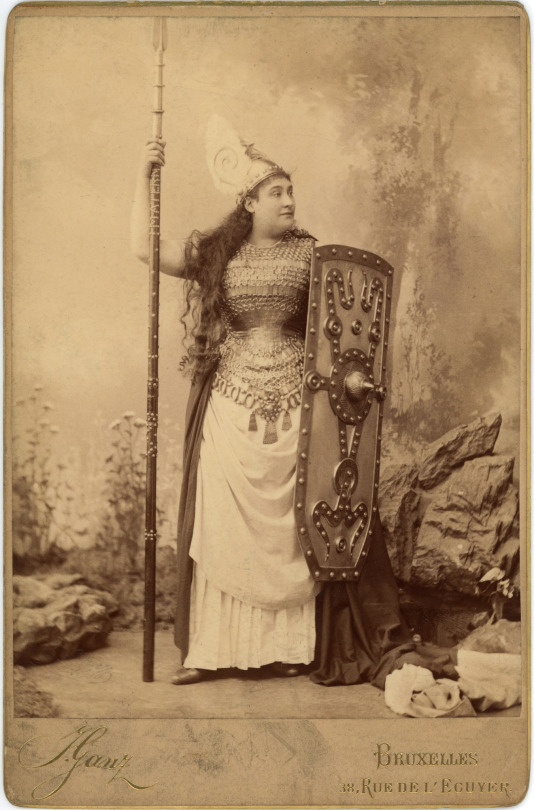


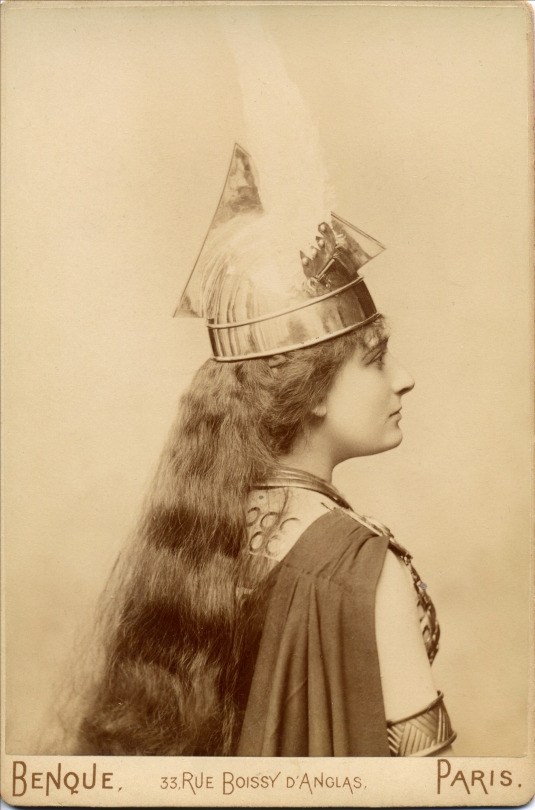



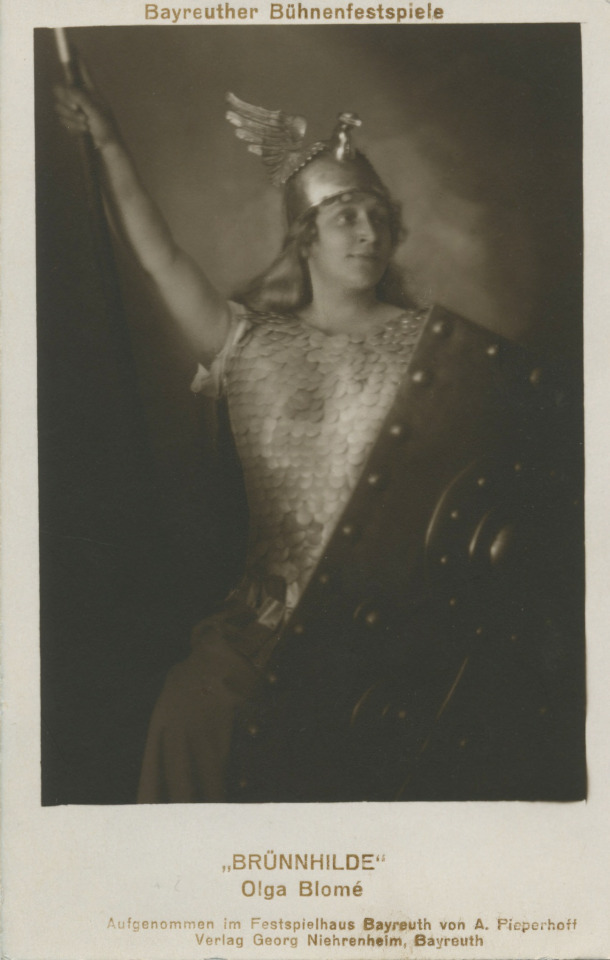
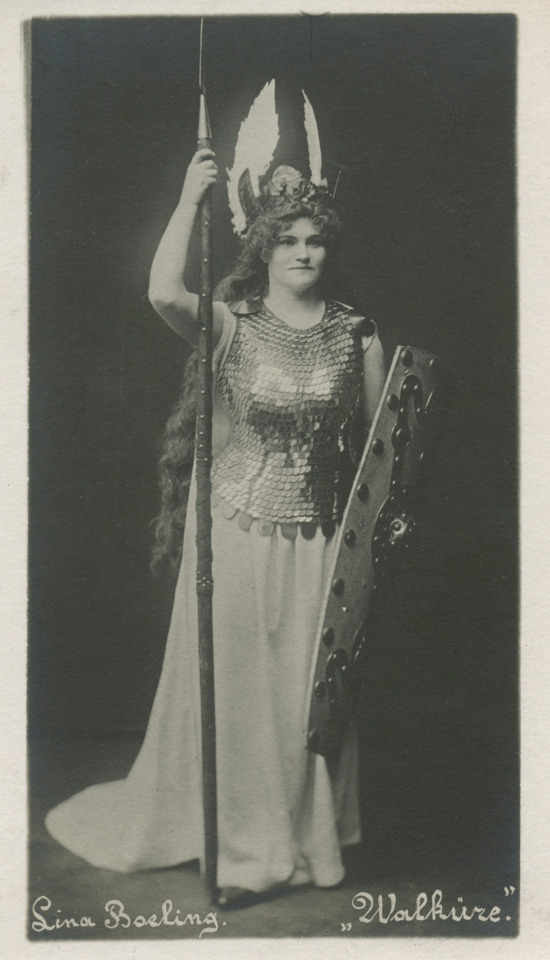
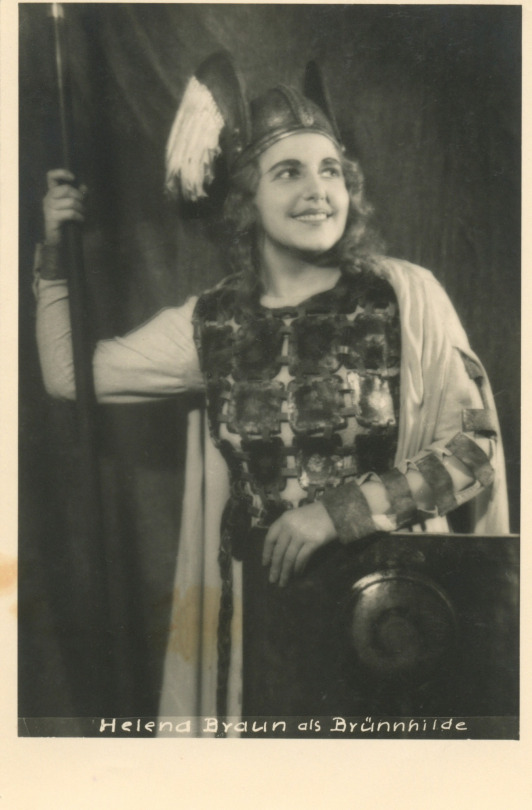

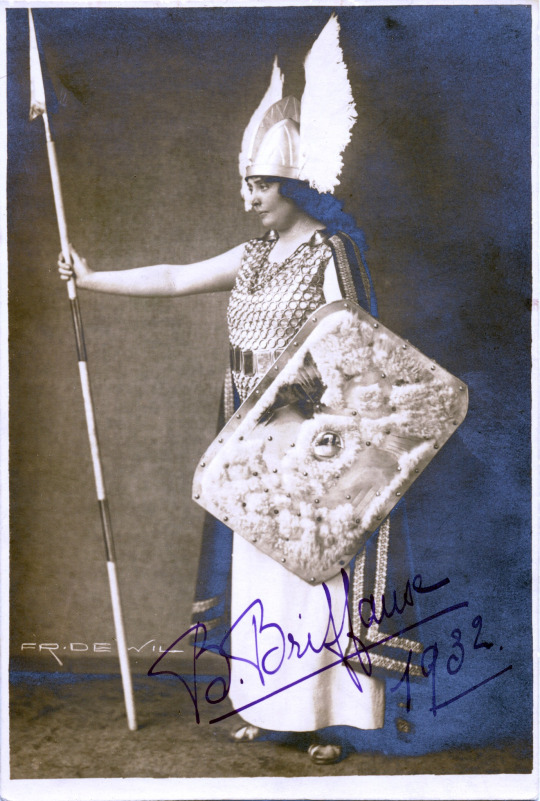
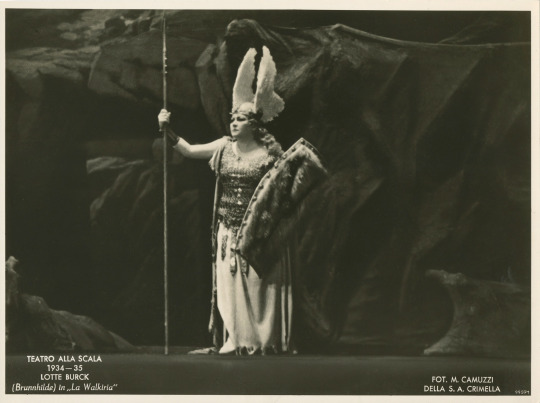
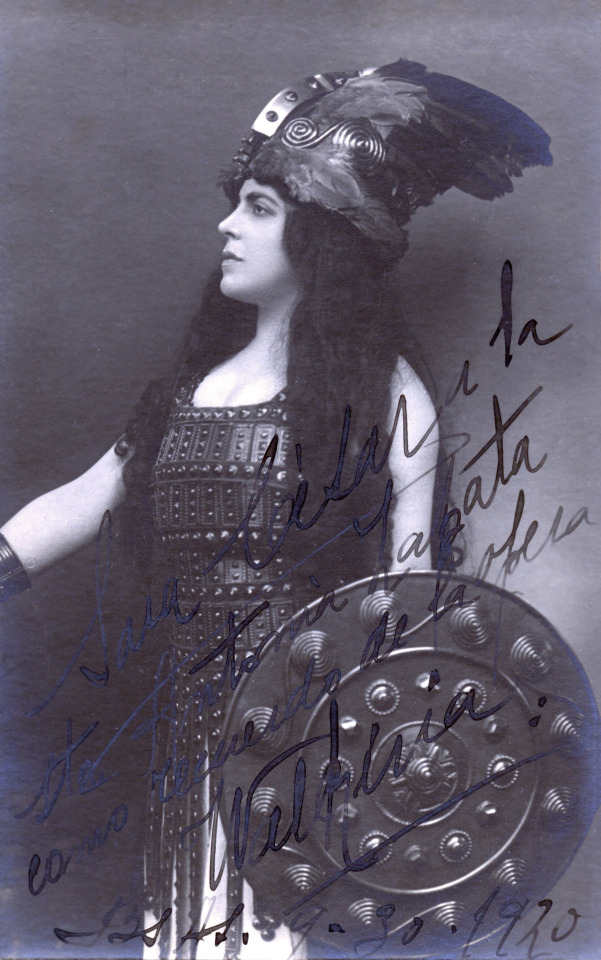
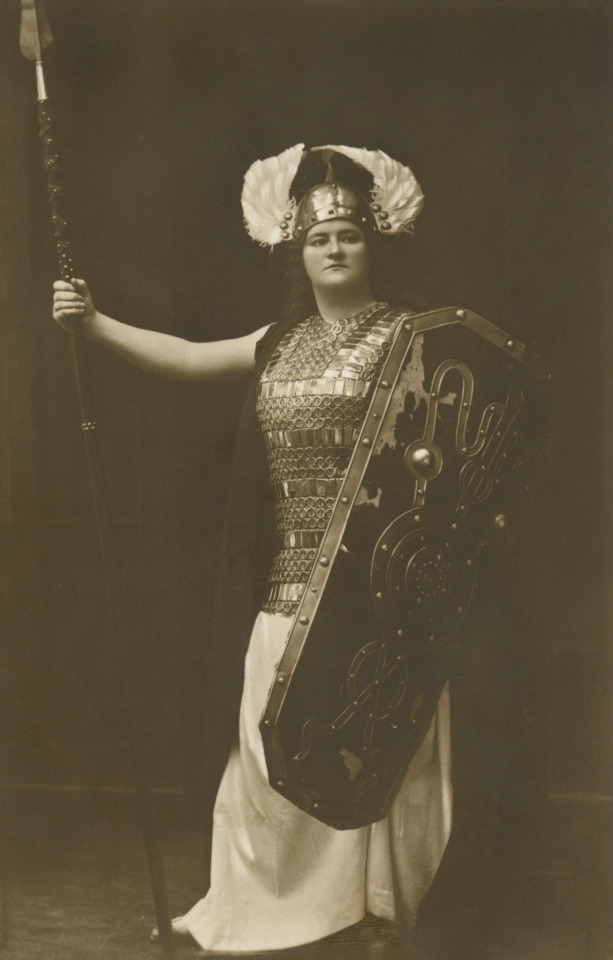

„WALKÜRE“ R. Wagner / SECOND and THIRD ACT
Some Brünnhildes
Amalie Materna as Brünnhilde; Bruxelles, 1889
Pauline Mailhac as Brünnhilde; Karlsruhe, 1891
Ellen Gulbranson as Brünnhilde; Bayreuth, 1902
Lucienne Breval as Brünnhilde; Paris, ca. 1900
Anna Bahr-Mildenburg als Brünnhilde; Vienna, ca. 1900
Laure Berge as Brünnhilde; Bruxelles, ?
Elise Beuer als Brünnhilde; ?, ?
Olga Blomé as Brünnhilde; Bayreuth, 1924
Lina Boeling as Brünnhilde; ?, ?
Helena Braun as Brünnhilde; Munich, ?
Gertrud Bindernagel as Brünnhilde; ?, ?
Berthe Briffaux as Brünnhilde; Antwerpen, 1932
Lotte Burck as Brünnhilde; Milan, 1932
Sara Cesar as Brünnhilde; Rome, 1920
Sofie Cordes-Palm as Brünnhilde; ?, ?
Erna Denera as Brünnhilde; Berlin, ?
#classical music#opera#music history#bel canto#composer#classical composer#aria#classical studies#maestro#chest voice#Die Walküre#The Valkyrie#Richard Wagner#Wagner#Der Ring des Nibelungen#The Ring of the Nibelung#Norse mythology#Völsunga saga#Poetic Edda#classical musician#classical mythology#classical musicians#classical voice#classical history#history of music#historian of music#musician#musicians#music education#music theory
34 notes
·
View notes
Photo
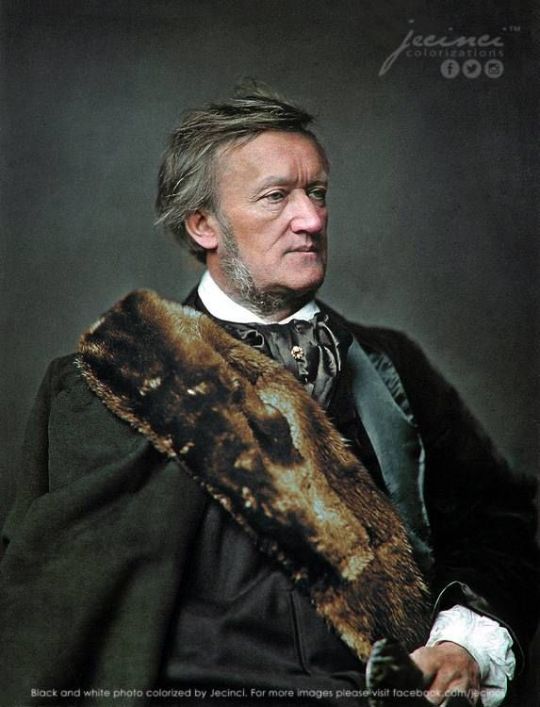
I write music with an exclamation point!
- Richard Wagner
If he were alive today Wagner would be 210 years old. Born on 22 May 1813, Wagner lived a tumultuous life created by his own very unstable personality. But there is no denying the man, infamous for his antisemitism, political exile, and constant poverty, was also a genius in every manner imaginable.
It is no stretch to say that without Wagner, music, theatre, and even other art forms such as cinema, would not be what they are today. Wagner created modern music and modern opera. He revolutionised the theatrical experience for audience members. He reshaped the understanding of what opera was and could be.
He was not only a composer, but also a librettist, conductor, stage director, actor, philosopher, writer, and poet. However, few composers are as divisive as Richard Wagner. Even putting aside his controversial character, holding political and antisemitic views, his music split audiences. A bit of a megalomaniac, his operas became all-engulfing “music dramas”, drawing on his concept of the Gesamtkunstwerk (the total work of art) which synthesised music and poetry with stagecraft, a unification of the arts through theatre. He even had an opera house built – the Bayreuth Festspielhaus – specifically to stage his works - one of the most incredible theatres in the world.
Wagner’s music was revolutionary and it influenced generations of composers. Claude Debussy made two pilgrimages to Bayreuth. In 1877, after hearing Act 1 of Tristan und Isolde, he declared it “decidedly the finest thing I know”, but by 1903 he had turned dissenter, commenting that Wagner was “a beautiful sunset that was mistaken for a dawn”.
Although other composers had used Leitmotifs before, Wagner took it to new levels. Der Ring des Nibelungen - his epic 15-hour tetralogy based on Norse sagas charting the fall of the gods - employs recurring Leitmotifs that represent characters, objects, actions and emotions. Indeed His works are among the first to be truly through-written without functional musical numbers that stopped for applause. He broke from previous musical tradition in how he saw his works as symphonies, the orchestra’s complexity pushed beyond anything realised before.
#wagner#richard wagner#quote#opera#classical music#music#musical theatre#the ring cycle#composer#german#bayreuth#genius#culture#arts
54 notes
·
View notes
Text







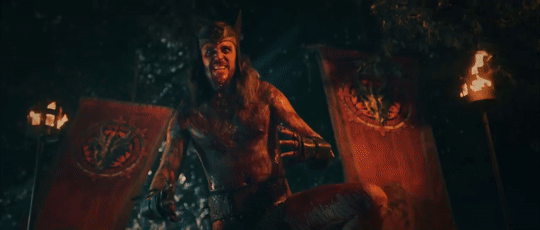
Fafnir, Hreitmars Sohn Ich fürchte nicht den Tod Und nicht dein Feuer Ich bin Siegfried Dragonslayer
SGFRD Dragonslayer — Feuerschwanz
#nibelungenlied#das nibelungenlied#the nibelungenlied#der ring des nibelungen#ring cycle#norse mythology#the saga of the volsungs#volsunga saga#feuerschwanz#music#my gif#my edit#thank you feuerschwanz for not only being a band i like with a nibelung-themed song#but also making me scream over the culmination of an inside joke between me and myself today
18 notes
·
View notes
Text
Book Recommendations (from a lit grad student)
So, as I have come to the end of my MA in world lit, I thought I should give you a list of some of the best books I've read, or learnt from. I ignore established canon and give to you recommendations from across the globe and across all genres. Books that defined their genre, or made an impact, or are just really cool and enjoyable to read. This list is not all dead white men.
I have split the list by era/year of publication primarily for easy reading. A lot of the sections are arbitrary. Some of them are not.
Note: This list is not conclusive! This is based on my own readings, and my own, personal, opinions. You have the right to your own opinions and preferences. If you have any suggestions, add them on below.
Classic lit (pre-1700)
Aristole - Poetics (c. 335 BCE)
As much as I hate it...this one is actually pretty important. I know I said 'contributions to literary canon don't matter', and here I am, immediately doing the opposite. But! Aristotle's Poetics is the earliest treatise on literary theory that has survived to the modern day. You want to know where our ideas of comedy and tragedy come from? Poetics. Three act structure? Poetics. Plot and character? Poetics. Key terms like catharsis, hubris, hamartia? Poetics. We had to read this for creative writing, and did I hate it? Yes. Am I a better writer for having read it? Also yes
Plato - The Republic (c. 375 BCE)
Plato is quite easy to read, of the classical philosophers. His works are mostly dialogues between characters, which makes them more engaging that some other dry philosophy texts. I wrote out a longer post with an explanation of Plato's Republic specifically here.
Genji Monogatari (pre-1021)
The first novel ever! Originally written in Japanese, be careful of your translations because most are of questionable quality. I've only read the first one by Suematsu and that's uhhhhh Bad™ but I think the current waterstones edition is decent?
The Völsunga saga OR The Vinland sagas (early 13th century)
Ah, how to choose just one Norse saga? These are both pretty solid examples of their style, and short (always a plus). The Völsunga saga was the inspiration behind Wagner's Der Ring des Nibelungen (famous for the piece The Valkyrie), and most likely Tolkien's works. The Vinland sagas supposedly have an anime/manga series inspired by them, though looking at the synopsis I cannot see where the inspiration was other than time period. Norse sagas - especially the Icelandic ones such as Vinland - are actually pretty good guides to real historic events, which is very cool. I could go on for hours about this, but I'll spare you the rambling.
Thomas More - Utopia (1516)
Lovely little sarcastic book about tudor politics and human nature all wrapped up in the original 'utopian text'. Surprisingly funny for something written so long ago, and very easy to read. I wrote a longer post about it here
Aphra Behn - Oroonoko (1688)
Hated it, but the themes are interesting and wow did the author lead an interesting life. Widely considered to be the first novel written in English, deals with colonialism, slavery, and honour, and Aphra Behn was a spy? I'm sure some of you will eat that up. Be warned, very 'noble savage'-y book, but less racist than it could've been so cool, I guess?
Early Modern Drama
Christopher Marlowe - Edward II (1592)
Gay. So gay. We're not supposed to call it gay (because of a whole host of reasons that I can and will explain if anyone shows up in my askbox complaining about academics) but it is a very very queer play and Kit Marlowe was too which is even better. Also our one and only history play on this list. Anyone who already knows how Edward II died (thanks horrible histories) do not spoil the ending.
Shakespeare - Twelfth Night (1602)
As with any Shakespeare, watch a performance if you can. I highly recommend the National Theatre version that was up on youtube in 2020. Very gay, no one is cishet. Lots of singing and dancing. Prime example of Shakespeare's comedies with added gender shenanigans.
Shakespeare - Hamlet (1609)
Yes I'm basic. Yes I like Hamlet. In the same way that Twelfth Night is a great example of Shakespeare's comedies, Hamlet is a good example of his tragedies. Mostly, though, I'm recommending this because the castle it's set in in Denmark (Elsinore) a) actually exists and b) does an amazing educational programme, with live actors performing scenes all across the castle! Watching the 'to be or not to be' soliloquy in the banquet hall just adds a whole other level to the experience of reading the play.
Shakespeare - Measure for Measure OR The Tempest
Shakespeare's problem plays. I couldn't pick just one, because they're both fantastic in different ways. Measure for Measure features what can only be described as the early-modern version of an ace protagonist - Isabella - who I adore. The Tempest has a really interesting portrayal of early colonialism and slavery. The reason they are 'problem plays' is they check all the boxes for a comedy...but they're not funny. At all. And they also check some of the boxes for a tragedy. They're certainly interesting reading
Ben Jonson - The Alchemist (1610)
Just a really good, solid play. Very funny. Bunch of con artists set up an elaborate scheme to rob rich people. Also very good for showing class structures of the time. Shakespeare gets all the recognition for this era but Jonson is just as good really, and definitely as clever.
Regency and Victorian lit (1700-1900)
Jane Austen
Literally anything by Austen. She is just so funny, so witty, and I wholeheartedly believe she'd be a feminist today. Master of the female gaze in literature, but beyond that she is basically credited with the invention of free indirect discourse, which is super cool. I have only read Pride and Prejudice, but I have heard good things about most of her books, so I don't feel bad recommending all of them.
William Blake
There's one poem by Blake about a London street urchin that breaks my heart every time I read it and that is the sole reason behind this recommendation I hate Romantic poets.
Mary Shelley - Frankenstein (1818)
You knew it was coming. First sci-fi, gothic horror, teenage girl writer. Gotta love Shelley.
Frederik Douglass - Narrative of the Life of Frederik Douglass (1845)
You know those books that are horrifying because they're real? That's this book. Doesn't shy away from the horrors of slavery and for a reason. This is an autobiography. It is not fiction.
Gowongo Mohawk - Wep-ton-no-mah (1890s)
My favourite play of all time. You will need to do a trip to either the British Library or the Library of Congress to read it because there are no other copies, but I did do a whole podcast episode about it because I'm apparently the expert? You can find it here.
Bram Stoker - Dracula (1894)
I know here on tumblr we adore Dracula, and for good reason. It's horrifying, it's got a blorbo, if you haven't read it already, go with a dracula daily read-through or @re-dracula for the best experience. (Re:Dracula also has episodes where they get scholars on to talk about things like racism and gender and queer theory surrounding the text which is SO COOL as an ex-lit student I love listening to those episodes.
Post-1900
Oscar Wilde - De Profundis (1905)
We had to read a snippet of this for A-Level and I wish it had been more because wow. Most lists like this will recommend Dorian Gray because it's a novel, but De Prof is so heartfelt and beautiful and sad and deserves to be read.
Baroness Orczy - The Scarlet Pimpernel (1905)
First masked vigilante/superhero! If you like comic books or superhero media, this is where it all started (funny how all the firsts so far have been written by women 🤔)
Erich Maria Remarque - All Quiet on the Western Front (1929)
If you only read one book in your life about WW1 make it this one! It is heartbreaking and beautifully written and makes you feel so many things. It was banned in...a lot of places for being anti-war (especially as WW2 came closer) and also because it was written by a German who was anti-war which was apparently impossible to comprehend. The prose is truly something to behold.
Modern lit (Post-war era)
George Orwell - 1984 (1948) OR Animal Farm (1945)
Which one you should read depends a lot on how long your preferred book is and how metaphorical your tastes are. Both are very good explorations of corrupt governments. Animal Farm is an easier read and shorter and is much more allegorical. 1984 is very in-your-face about how much authoritarian governments suck. Do not discount 1984 just because Winston is a terrible person. Everyone knows he's terrible. That's the whole point. He is a normal terrible person, not a cartoonishly evil terrible person, or an angelically perfect revolutionary. All the characters are realistic for their situation.
Maya Angelou - I know why the caged bird sings (1969)
Another one with some beautiful prose. She's a poet and you can tell. It's an autobiography, plus there's a lot of clever stuff going on with how it's written. You could write an essay about this. I did.
Ghassan Khanafani - Return to Haifa (1969)
A short story by a Palestinian author - we were given this by our Palestinian lecturer as an intro to the conflict and the terrible things that colonialism has done to the region. Additionally, there are notes throughout that help explain the significance of things and background and all that jazz. There is a play version that is probably easier to find because it was published more recently but it's not as good.
Ben Okri - The Famished Road (1993)
I did not read this book for uni and I think that may have influenced my opinion of it slightly but I still credit it as one of the reasons I got interested in world lit and translation. It's a really beautiful exploration of Nigerian mythological tradition and its effect on family and politics in this kind of fascinatingly weird style that's both magical realism and modernist? I hate modernism but love magical realism more so.
Carmen Maria Machado - In the Dream House (2019)
What a book oh wow. It reads like poetry. I cannot think of anything coherent to say my brain is screaming. The novel explores abuse in queer relationships, which is something people don't normally talk about, through some very interesting motifs and I love it so much. It is hard to read, but very rewarding.
#studyblr#english lit student#bookblr#book recommendations#maybe i will do another one for theory#maybe i will not#classics#literature#the lack of early 1900s stuff distresses me but also#i am not and never have been a fan of that era#i am not willing to inflict virginia woolf or ts eliot on anyone#my specialties are all pre-1900 or post-war soooo
14 notes
·
View notes